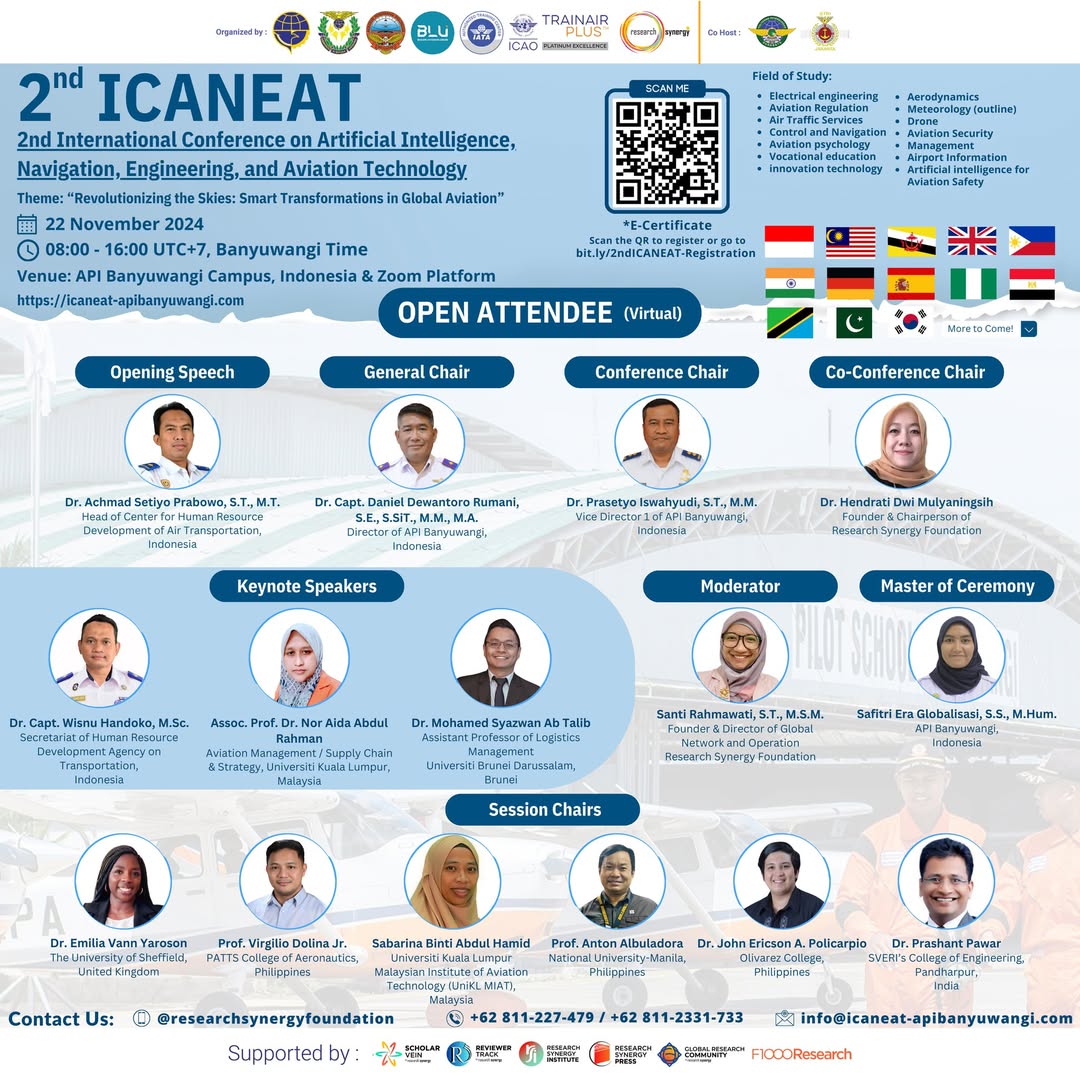Phenomenological Study of Regional Financial Policy Implementation in Indonesia
Keywords:
Regional Financial Policy, Human Resource Capacity, Infrastructure, Governance and Phenomenological Study.Abstract
Regional financial management is a crucial element in supporting the implementation of effective regional development and public services. However, in practice, the implementation of this policy is often hampered by various obstacles, especially limited human resource (HR) capacity and lack of supporting infrastructure. This article examines in depth how these limitations affect the process of regional financial planning, budgeting, implementation and reporting. This study also describes the implications of these limitations on transparency, accountability and effectiveness of regional financial governance, and formulates solutions so that financial policies can be implemented optimally. The results of observations on the main problems found that regional financial policies in Indonesia face several main obstacles, namely limited Regional Original Income (PAD) which causes high dependence on transfer funds from the central government. This has an impact on low regional fiscal independence and limited flexibility in managing the budget for local development. In addition, regional financial management still faces challenges in the form of lack of efficiency, transparency and accountability, which is exacerbated by limited human resource capacity in terms of regional financial management. The inconsistency of central fiscal policies with regional conditions and needs is also an inhibiting factor in the implementation of regional financial policies. Therefore, efforts are needed to increase human resource capacity, improve governance and supervision, and adjust fiscal policies to be more flexible so that regions can optimize financial management to support sustainable development.
References
[1] Satrovic, E., Zafar, M. W., & Suntraruk, P. (2024). Achieving ecological sustainability in European Union: The role of fiscal decentralization and green innovation. Journal of Cleaner Production, 445, 141316.
[2] Lyu, Y., Bai, Y., & Zhang, J. (2024). Green finance policy and enterprise green development: Evidence from China. Corporate Social Responsibility and Environmental Management, 31(1), 414- 432.
[3] Zhang, W., Ke, J., Ding, Y., & Chen, S. (2024). Greening through finance: Green finance policies and firms' green investment. Energy Economics, 131, 107401.
[4] Fatimah, M., Haryanto, H., & Retnandari, N. D. (2024). Central-Local Government Relations in Regional Planning and Budgeting in Indonesia: Between Autonomy and Control. Policy & Governance Review, 8(2), 131-153.
[5] Indrawati, S. M., Satriawan, E., & Abdurohman. (2024). Indonesia’s Fiscal Policy in the Aftermath of the Pandemic. Bulletin of Indonesian Economic Studies, 60(1), 1-33.
[6] Hariyanto, H., Meidina, A. R., & Azizah, M. (2024). Decentralization and the Fulfilments of Children's Rights: Challenges and Opportunities for Local Government in Indonesia. Lex Scientia Law Review, 8(2).
[7] Saputra, K. A. K., Subroto, B., Rahman, A. F., & Saraswati, E. (2021). Financial management information system, human resource competency and financial statement accountability: a case study in Indonesia. The Journal of Asian Finance, Economics and Business, 8(5), 277-285.
[8] Sumaryati, A., Praptika Novitasari, E., & Machmuddah, Z. (2020). Accounting information system, internal control system, human resource competency and quality of local government financial statements in Indonesia. The Journal of Asian Finance, Economics and Business, 7(10), 795-802.
[9] Keuangan Pemerintah Daerah. Jakarta: Kemendagri.
[10] Viennet, R., & Pont, B. (2017). Education policy implementation: A literature review and proposed framework.
[11] Thurlings, M., Vermeulen, M., Bastiaens, T., & Stijnen, S. (2013). Understanding feedback: A learning theory perspective. Educational Research Review, 9, 1-15.
[12] Burton-Jones, A., & Grange, C. (2013). From use to effective use: A representation theory perspective. Information systems research, 24(3), 632-658.
[13] Snyder, H. (2019). Literature review as a research methodology: An overview and guidelines. Journal of business research, 104, 333-339.
[14] Smith, J. (2020). Regional financial policy and local economic growth. Public Finance and Development, 19(4), 310–328. https://doi.org/10.xxxx/pfd.2020.19.4
[15] Chen, L., & Lee, H. (2019). Financial decentralization and regional development. Asian Economic Policy Review, 14(1), 45–60. https://doi.org/10.xxxx/aepr.2019.014.
[16] Ahmad, R., Nugroho, A., & Widodo, D. (2021). Challenges in regional financial policy implementation. Journal of Public Administration Studies, 13(2), 155–170. https://doi.org/10.xxxx/jpas.v13i2.2021
[17] Rodriguez, M. (2018). Fiscal policy and regional inequality. Regional Economics Journal, 22(3), 210–225. https://doi.org/10.xxxx/regionalecon.2018.22.3
[18] Sari, M., & Putra, R. (2022). Evaluation of regional financial policy in Indonesia. Indonesian Journal of Fiscal Studies, 8(1), 80–95. https://doi.org/10.xxxx/ijfs.2022.08.01
[19] BPK RI. (2022). Ikhtisar Hasil Pemeriksaan Semester I Tahun 2022.
Jakarta: BPK RI
[20] Permendagri No. 77 Tahun 2020 tentang Pedoman Teknis Pengelolaan Keuangan Daerah
[21] Pallangyo, W., & Rees, C. J. (2013). Local government reform programs and human resource capacity building in Africa: evidence from local government authorities (LGAs) in Tanzania. In Public Sector Reform in Developing and Transitional Countries (pp. 148- 159). Routledge.
[22] Andhayani, A., & Eltivia, N. (2022). The effect of implementation of the regional government information system (SIPD) on regional financial transparency in local governments.
[23] Narbón‐Perpiñá, I., & De Witte, K. (2018). Local governments' efficiency: a systematic literature review—part I. International Transactions in Operational Research, 25(2), 431-468.
[24] Cloete, H. C. A. (2016). Human resource development in local government: A management perspective (Doctoral dissertation, Stellenbosch: Stellenbosch University).
[25] Kementerian Keuangan Republik Indonesia. (2023). Outlook Transfer ke Daerah dan Dana Desa (TKDD). Jakarta: DJPK Kemenkeu.
[26] Kementerian Dalam Negeri Republik Indonesia. (2023).
Laporan Evaluasi Kinerja
[27] Komisi Pemberantasan Korupsi (KPK). (2020). Kajian Sistem Perencanaan dan Penganggaran Daerah. Jakarta: KPK RI
[28] OECD. (2020). Strengthening Budget Practices in Indonesian Local Governments. Paris OECD Publishing
[29] Undang-Undang No. 23 Tahun 2014 tentang Pemerintahan Daerah
[30] Undang-Undang No. 33 Tahun 2004 tentang Perimbangan Keuangan antara Pemerintah Pusat dan Daerah
[31] Economic Prospects: Boosting the Quality of Public Spending. Washington, DC: World Bank.
[32] Zhao, X., Zeng, B., Zhao, X., Zeng, S., & Jiang, S. (2024). Impact of green finance on green energy efficiency: a pathway to sustainable development in China. Journal of Cleaner Production, 450, 141943.
Downloads
Published
Issue
Section
License
Copyright (c) 2025 Sundari Apriliani, Oktarini Khamilah Siregar (Author)

This work is licensed under a Creative Commons Attribution-ShareAlike 4.0 International License.









